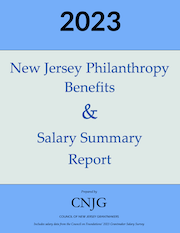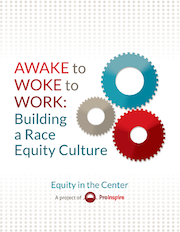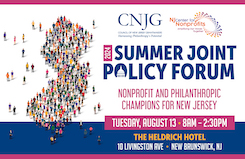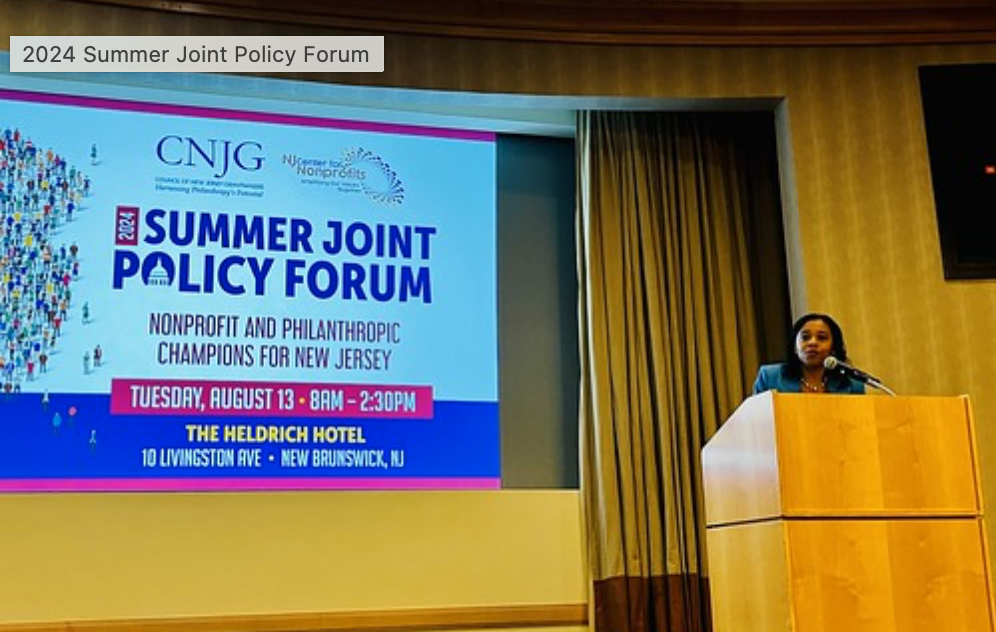Site Search
- resource provided by the Forum Network Knowledgebase.
Search Tip: Search with " " to find exact matches.
TD Charitable Foundation on Monday said it awarded a total of $7 million to 37 nonprofits across the bank’s footprint through the 17th annual Housing for Everyone grant program.
According to the charitable giving arm of Cherry Hill-based TD Bank, “America’s Most Convenient Bank,” grants ranging from $150,000 to $250,000 will support organizations that work to deliver rental assistance, rehabilitate affordable rental housing properties and build organizational capacity to address resident sustainability for the long-term.
As individuals and families across the country struggle with inflation and an exponential rise in rental costs, affordable housing providers face increased hardship, given the growing demand for affordable rental units and emergency rental assistance.
“The affordable housing crisis continues to burden the most vulnerable members of our communities and the organizations committed to supporting them,” Paige Carlson-Heim, director of the TD Charitable Foundation, said. “At TD, we’re committed to doing our part to help create a more sustainable and inclusive future for everyone, and that includes providing access to safe, affordable homes. This year’s grant recipients are mission-critical to that work, and the TD Charitable Foundation is proud to support them in their efforts to create a positive impact and a pathway to housing stability in the communities we serve.”
TD Charitable Foundation, the charitable giving arm of TD Bank, America's Most Convenient Bank®, today announced it awarded a total of $7 million to 37 non-profits across the bank's Maine to Florida footprint and in Michigan through the 18th annual Housing for Everyone grant program. Grants ranging from $150,000 to $250,000 will support independent living for marginalized community members, especially those who experience homelessness and face conditions that make it difficult to maintain a stable home without additional help.
As the affordable housing crisis continues, gaining access to and sustaining safe affordable housing remains out of reach for many across the U.S. The 2024 Housing for Everyone grant recipients represent organizations focused on housing solutions including rapid re-housing (such as short-term rental assistance), permanent supportive housing (such as a combination of leasing and/or rental assistance and/or support services) or transitional housing (such as temporary accommodations) that lead to stable, independent living situations.
"These organizations are making it their primary mission to help relieve some of the most vulnerable members of our community — those who are unsheltered or experiencing homelessness due to higher eviction rates as pandemic-era programs have ended or financial insecurity grows through inflation or other factors," said Paige Carlson-Heim, Director of the TD Charitable Foundation. "Housing for Everyone grant recipients are working closely with TD to improve access by creating innovative solutions that are helping to create a more sustainable and inclusive future for everyone. It is a privilege to support our 2024 Housing for Everyone grant recipients and to continue to be a part of this imperative work."
With the recent passage of the federal budget bill that slashed Medicaid and food assistance for millions of Americans while directing $170 billion to border militarization and the surveillance, detention, and deportation of immigrants, it is clear that private industry stands to profit while tearing families and communities apart. Indeed, between Trump’s election in November 2024 and April of this year, the stock prices of the nation’s two largest private detention facility operators, GEO Group and CoreCivic, soared 94% and 62% respectively – a pattern that the Brennan Center for Justice notes followed Trump’s first election. Indeed, in the immediate aftermath of the budget bill’s signing, both companies saw a further 3% increase in stock value.
With billions in philanthropic assets invested in financial markets, advocates have long called for divestment from private detention facilities and the broader prison-industrial complex. These efforts exist as part of the larger movement for divestment from the range of extractive industries that harm the very communities that foundations seek to support through their grantmaking. Numerous funders have taken up the challenge of revisiting their investment strategies to better align with their missions, with some also pursuing restorative grantmaking practices. In this session we’ll engage in a discussion with several of those funders, as well as an impact investment firm committed to advancing a regenerative economy.
This session will be an excellent opportunity for staff on both the investment and grantmaking sides of the house to learn first-hand what it looks like to operationalize divestment and impact investing strategies, so invite your colleagues and bring your questions!
Speakers
Hans How, Integrated Capital Officer, Restorative Economies Fund, Kataly Foundation
Alex Saingchin, Co-Founder & President, Just Futures
Rochelle Witharana, Chief Financial and Investment Officer, California Wellness
Moderator
Rachel Fagiano, Funders for Justice
Cost: Free
We’ve all heard the African proverb, “If you want to go fast, go alone; if you want to go far, go together.” Partnerships and collaborations are how we don’t go it alone.
Just last week, one of our partners via United Philanthropy Forum, (our philanthropy-serving organizations network), Northern California Grantmakers offered an online briefing for funders throughout the nation to understand how the latest round of wildfires are impacting communities in the state, and what philanthropy can do. Good partners work together to galvanize support on issues of importance.
Partially because of our partnership as a member of the Forum, we are able to engage Phil Buchanan, President of The Center for Effective Philanthropy to give the keynote at the upcoming CNJG Annual Meeting & Holiday Luncheon. The CNJG staff heard Phil speak at the Forum's Annual Conference in July, and were inspired by his words. Good partners create opportunities to learn and grow.
Our partnership with the Center for Non-Profits is an exceptional example of two organizations working different sides of the same street to improve the whole community. A considerable portion of the partnership’s work over the years has been focused on addressing systemic issues prevalent in the social sector. We’ve tackled the overhead myth, government contracting, the true costs of providing programs and services, and more.
The upcoming Annual Meeting Pre-Meeting Workshop will continue this legacy of partnership and addressing systemic issues. President of the Center, Linda Czipo, and Tim Delaney, President of the National Council of Nonprofits will help us consider how to overcome power dynamics between funders and nonprofits, and how funders can create trusting and transparent relationships with grantees. We’ll also explore strategies to incorporate full cost funding – a key systemic issue that once solved - strengthens the effectiveness of grantmakers and grantees' work. Good partners stand shoulder to shoulder doing the hard work to make meaningful change.
When I asked google how to describe a good partnership – it came back with words like supportive, open, respectful, effective, genuine… And while these adjectives are spot-on requirements for a good partnership, we should also note that partnerships are hard and require constant care and attention. And so we are constantly vigilant to nurture, maintain and grow our partnerships. The value of working in partnership with others has long been a powerful strategy in the social sector. Nonprofit organizations understand that partnerships can be highly effective given the right mix of trust, communication, and an understanding of the unique strengths each partner brings to the table. Our partnerships clearly reflect this important mix.
Another type of partnership is the one between our member sponsors and our Signature events. Thank you to our sponsors of the Annual Meeting & Holiday Luncheon: Signature Sponsor – Novartis, Sustaining Sponsor – The Prudential Foundation, Speaker Sponsor – New Jersey Health Initiatives, Gift Sponsor – The Princeton Area Community Foundation, Program Sponsor – Novo Nordisk, Pre-Meeting Workshop Sponsor – Sixers Youth Foundation and Devils Care Foundation, Performance Sponsor – The Provident Bank Foundation, Contributing Sponsor – Horizon Blue Cross Blue Shield of New Jersey, Supporting Sponsor – The Jay and Linda Grunin Foundation, with additional support provided by NJM Insurance Group. We greatly appreciate the generosity of our sponsors. We could not do this work without you. Good partners support one another.
The Council’s work relies on partnerships with a vast number of other organizations and entities. Among them: You and other CNJG members, colleague philanthropy-serving organizations, nonprofit associations, national affinity groups, government leaders, corporate stakeholders, communities throughout our state, and so many more either known or yet to be engaged.
We’re thrilled that we can showcase concrete examples of our partnerships up front and center at the CNJG Annual Meeting & Holiday Luncheon. I hope you’ll join us – register here!
“If you want to go fast, go alone; if you want to go far, go together.” Words to live by.
In partnership,
Maria Vizcarrondo, President and CEO
Council of New Jersey Grantmakers

The 2023 New Jersey Philanthropy Benefits & Salary Summary Report provides a valuable benchmarking resource for CNJG members on the benefits offered to employees and trustees and salaries for employees. Developed and compiled exclusively for CNJG members, the report presents comprehensive benefits data specific to New Jersey's grantmaking community, alongside data from the Council on Foundations' annual salary survey. Produced every three years, this benchmarking report is a highly anticipated and valued benefit of your CNJG membership.
The first section, 2023 CNJG Benefits Summary Report, includes benefits data for the 2023 calendar year and covers employment numbers, leave benefits, insurance benefits, and more. Within this section, we are pleased to also present demographic data on the board and staff of those that responded. Thank you to the members that completed our benefits survey earlier this year enabling us to produce this report.
The second section, 2023 Grantmaker Salary Tables: National, Mid-Atlantic and New Jersey provides data on compensation across a wide range of positions and grantmaking entities. Thank you to the CNJG members that completed the Council on Foundations’ annual survey on salaries that enabled us to produce this section of the report. Thank you to the Council on Foundations for compiling and sharing this data with us for free to use our report.
We are pleased to share Strengthening Philanthropy in Newark - Report to the Field 2015 from the Office of the Newark Philanthropic Liaison. First established in 2007, the Liaison office represents one of the nation’s first formal partnerships between a city and the philanthropic community. The initiative began as a partnership between the Council of New Jersey Grantmakers in collaboration with then Mayor Cory A. Booker. We are proud this unique partnership continues with Mayor Ras Baraka and his new administration.
This report provides a brief summary of some of the substantial activities and impact the Office of the Newark Philanthropic Liaison facilitated throughout 2015. The strategy of collective impact is thriving throughout Newark thanks in large part to the work of the Liaison, and the funding community’s support of and robust engagement with the Office of the Mayor and anchor institutions across the city continue to reap positive outcomes. The Office of the Newark Philanthropic Liaison is supported by: Bank of America, The Foundation for Newark’s Future, Geraldine R. Dodge Foundation, The MCJ Amelior Foundation, The Nicholson Foundation, Panasonic Corporation of North America, The Prudential Foundation, Schumann Foundation for New Jersey, Turrell Fund, Victoria Foundation, and PSEG Foundation providing in-kind support and meeting space.
The Princeton Area Community Foundation recently awarded $199,000 in COVID-19 Relief & Recovery Fund grants to 25 nonprofits holding summer programs.
These programs will include instructions to help students overcome learning loss caused by the pandemic.
"Through these grants, we are helping 25 nonprofits engage 2,900 children in educational and social-emotional learning programs," said Jeffrey M. Vega, President & CEO of the Community Foundation.
"We know COVID-19 caused significant disruptions to education, especially for students living in under-resourced communities, and we hope these grants will help young people rebound from some of that learning loss and re-engage children in the many community-based programs that were forced to shut down last year."
To prepare for the third phase of COVID Relief funding, the Foundation reached out to nonprofits and other stakeholders to learn about needs throughout the region.
Learning loss due to the pandemic and helping prepare students to return to classrooms were among the highest priorities cited by nonprofits.
According to a report by JerseyCAN, a nonprofit focused on education, a majority of New Jersey's third- through eighth-graders were not on grade level at the start of the 2020-21 school year because of the pandemic.
Get the complete 2024 Joint Policy Forum Resource List including a printable Agenda on the New Jersey Center for Nonprofits website.
Conference Photos
In predominantly renter-based markets across the Northeast, housing-related financial strain remains a significant barrier to household stability and long-term economic security. Yet innovative models are emerging that seek to flip that script, creating pathways for renters to build assets, reduce risk, and participate more fully in local prosperity.
Building on the momentum from AFN’s September 2024 webinar exploring regional strategies to increase affordability, reduce evictions, and deliver financial return or dividends to renters, this session will take a deeper dive into renter wealth-building models in action.
Join AFN, partners in New Jersey, and collaborators from national nonprofits and financial institutions as we explore promising approaches that leverage public-private tools, housing finance innovation, and credit-building strategies tied to rent payment. We’ll examine how these approaches can expand renter access to economic opportunity and help funders consider how to adapt similar efforts in urban centers across the region.
Speakers:
Rachel Levy-Culler, Housing Innovations Senior Specialist, Credit Builders Alliance (CBA)
Marcus Randolph, President & CEO, Invest Newark
Khaatim Sherrer El, Executive Director, Clinton Hill Community Action
Marco Villegas, Program Officer, JPMorgan Chase
Who Should Attend:
Philanthropic leaders, community investors, housing advocates, and public-private partners working to advance financial security and equity for renters. This webinar is open to all and will focus on the New Jersey and Northeast AFN regions.
Captioning will be provided. If you have any other accessibility requests or questions, please email Paula Dworek. Requests for reasonable accommodations must be received by May 5, 2025, to ensure our ability to meet your request.
In this second session of GCIR’s Anti-Authoritarian Funder Learning Series, we will lean into the wisdom of advocates, pro-democracy funders, and influential thinkers to unpack the patterns of autocratic governance taking hold in the United States, and explore how philanthropy can help avert our democracy’s decline.
While broad swaths of the American public are grappling with the unmistakable and fearful evidence of our authoritarian drift, the good news is that we do not have to go it alone. The backsliding of democratic norms, attacks on civil society, and centralization of abusive executive power is a story that has played out countless times in fledgling and long-standing democracies alike. The brave, strategic, and resilient resistance of everyday citizens in those countries—along with the documentation and analysis of journalists and historians—offers us not just an understanding of the authoritarian playbook (such as vilifying migrant communities to rationalize immigration enforcement), but a roadmap out of it.
Join us as we learn from international advocates, as well as pro-democracy funders and advocates. Together, we will examine the strategies that have been deployed globally against democratic repression—and, crucially, how philanthropy can resource the movement infrastructure needed over the next 18 months to prevent the consolidation of autocratic rule in the United States.
Statement on the Pandemic and Responses to It
As the leaders of the major philanthropic and non-profit membership organizations in New Jersey, representing both the wide range of non-profit groups and the multi-faceted funders of those groups, we feel compelled to speak out against the hateful responses we and our members have witnessed in reaction to the COVID-19 Pandemic.
Our country has seen countless examples of selfless sacrifice and good works over the past month, both on individual and institutional levels. We are proud that our members have been leaders in responding to the needs of our community.
But to our distress, some individuals have used the pandemic to put forward their bias and hatred toward their fellow citizens.
Times of crisis bring to the surface, on the part of some people, the need to scapegoat. Often, this takes the form of lashing out at particular groups, stirred up by inflamed rhetoric or more subtle code words or phrases, having no relationship to facts. In this time, there have been verbal and physical attacks against people of Asian and Pacific Islander background, as there were against Muslims after September 11 and against African-Americans and Latinos in countless other instances. This hatred and these attacks must stop.
The non-profit sector is the backbone of our communities, providing assistance and education to a wide range of people, in good times and especially challenging times. Many of these services are a lifeline to individuals of all backgrounds, religions, ethnicities, and statuses in life. Non-profit organizations are the vehicle through which people can work together to selflessly assist others. People around the world view the United States as being unique in the breadth and depth of its charitable and philanthropic work, engaging the talents of all individuals, regardless of their economic or social status.
We call upon all people of good conscience in their good work to be alert for these hateful words and actions and to speak out against them, both as individuals and as organizations. Our language and our actions do matter. Everyone, but especially people in positions of public trust or prominence, has the obligation to use our works and our lives to assist all in need and to honor the dignity and potential of all those we meet. We call on not only our own members, but all individuals who serve and volunteer in our sector to join us in this effort to speak out against racism and hatred and to exemplify all the best that we know our country is.
William V. Engel
CNJG Board Chair
Maria Vizcarrondo
CNJG CEO and President
Gina M. Plotino
Center for Non-Profits Board Chair
Linda Czipo
Center for Non-Profits CEO and President
With the overturning of Roe v. Wade, several states have either banned access to abortion care, or severely restricted access. As a result, states like New Jersey have seen a surge in individuals seeking care, further straining reproductive care providers. As New Jersey’s sole member of the National Network of Abortion Funds (NNAF), the New Jersey Access Abortion Fund advances abortion access and bodily autonomy by funding abortions for people traveling to, from, and within New Jersey. The very first portion of this briefing will be an update on the reproductive rights legal landscape from Attorney General Matthew J. Platkin. After the AG departs, we will then introduce attendees to NJAAF’s work and offer a frank conversation about economic barriers that making it difficult for individuals to seek care.
Speakers include:
Matthew J. Platkin, Attorney General, State of New Jersey
Hans Dekker, President, Community Foundation of New Jersey
Sheila Reynertson, Senior Program Officer, Robert Wood Johnson Foundation
Emily Zahn, Board Member, NJ Abortion Access Fund
Kathleen DiGiulio, Board Member, NJ Abortion Access Fund
Cost: Free for CNJG Members only
Quadira Coles (she/her)
Quadira Coles is a legislative/policy professional based in New Jersey/New York, committed to advocating for systemic and material changes that create liberating spaces and experiences for Black people, especially young people. She serves as the President of the New Jersey Abortion Access Fund. Her work focuses on reproductive and sexuality health justice and ending youth criminalization with a framework in Black Feminism. Her start in advocacy started when she began working directly with system-impacted youth through direct service and then worked on political campaigns and training young women to become community organizers. She has her Masters in Public Administration from John Jay College of Criminal Justice and Bachelors in Criminal Justice from Penn State University.
Emily Zahn (she/her)
Emily Zahn is the current Secretary of The New Jersey Abortion Access Fund. She has been a volunteer board member with NJAAF since 2022. With over ten years of experience in nonprofit organizing and fundraising, Emily has had the privilege of working for and volunteering with organizations including the National Institute for Reproductive Health, several Planned Parenthood affiliates, and California Women’s List. She currently works at ActBlue where she heads up their non-profit and PAC account management team. Emily is passionate about building community and connecting supporters to causes they care about in deep, meaningful ways. Emily holds a Master’s in Social Work from NYU and a BSW from Skidmore College.

Achieving race equity — the condition where one’s racial identity has no influence on how one fares in society — is a fundamental element of social change across every issue area in the social sector. Yet the structural racism that endures in U.S. society, deeply rooted in our nation’s history and perpetuated through racist policies, practices, attitudes, and cultural messages, prevents us from attaining it. The impact of structural racism is evident not only in societal outcomes, but in the very institutions that seek to positively impact them
In a sector focused on improving social outcomes across a wide range of issues, we need only look within our own organizations to understand why we have not yet achieved the depth of change we seek. Throughout the social sector, there remains a glaring omission of a fundamental element of social impact: race equity. While issue-specific dynamics play an important role in driving social impact (e.g., public policy around affordable housing or the elimination of food deserts to create access to nutritious foods), the thread of structural racism runs through almost every issue faced by the U.S. social sector. Race equity must be centered as a core goal of social impact across the sector in order to achieve our true potential and fulfill our organizational missions.
This report from the TCC Group finds that the flexibility, nimbleness, and willingness to collaborate demonstrated by the philanthropic sector over the past year in response to a rapidly changing policy environment could serve as a model for the sector going forward.
Based on interviews with nearly thirty leaders of philanthropy-serving organizations (PSOs), this report found that in the first year of the Trump administration, PSOs and funder collaboratives were called on to keep funders well informed of policy changes. To that end, PSOs have played a critical role in enabling funder learning, dialogue, and action, and have helped accelerate important funder conversations in the areas of diversity, equity, and inclusion; the need to think beyond issue silos; and the foundational benefits of creating space for dialogue across political and ideological divides through nonpartisan civic engagement.
The report also notes that while some funders have remained cautious, taking a "wait and see" approach to how national political changes might affect their grantmaking priorities, a greater number have been moved by rapidly changing policies to consider aligning their "institutional voice" with other grantmakers to maximize their impact.


